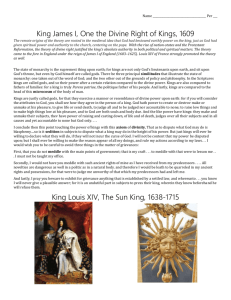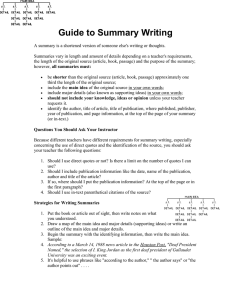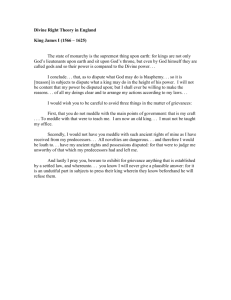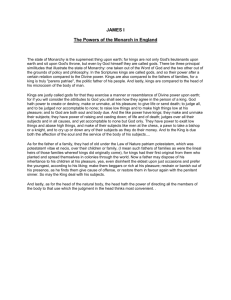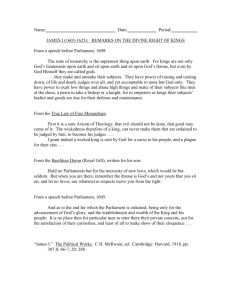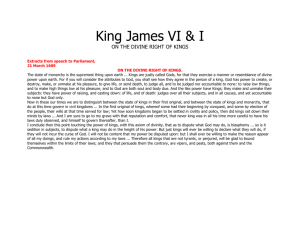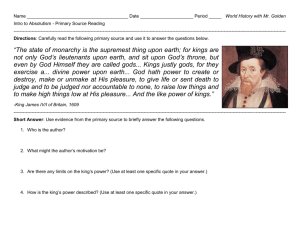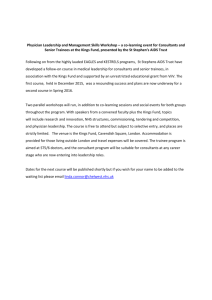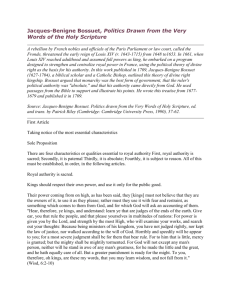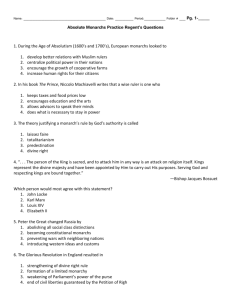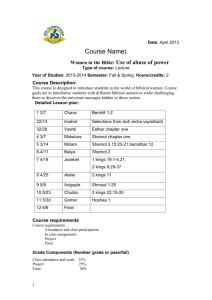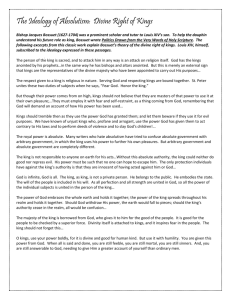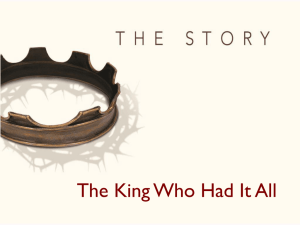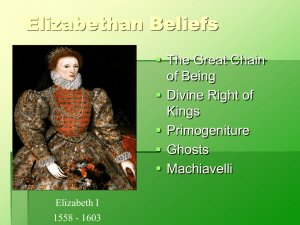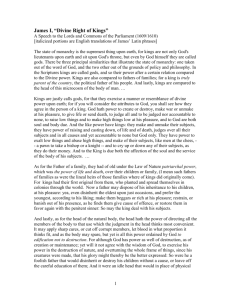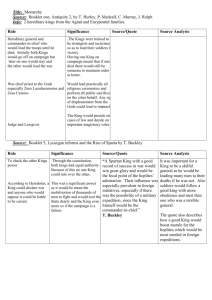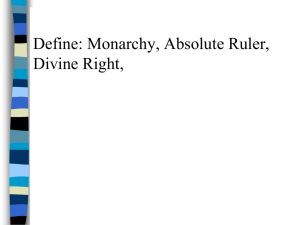James I – Speech Before Parliament – March 21, 1609
advertisement
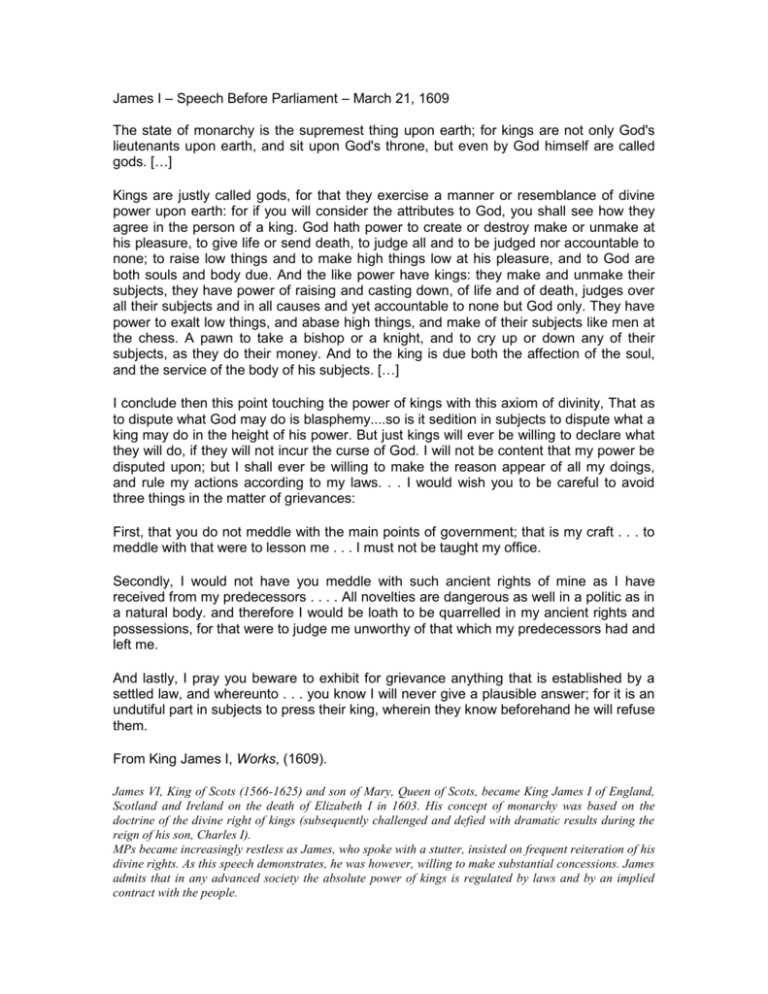
James I – Speech Before Parliament – March 21, 1609 The state of monarchy is the supremest thing upon earth; for kings are not only God's lieutenants upon earth, and sit upon God's throne, but even by God himself are called gods. […] Kings are justly called gods, for that they exercise a manner or resemblance of divine power upon earth: for if you will consider the attributes to God, you shall see how they agree in the person of a king. God hath power to create or destroy make or unmake at his pleasure, to give life or send death, to judge all and to be judged nor accountable to none; to raise low things and to make high things low at his pleasure, and to God are both souls and body due. And the like power have kings: they make and unmake their subjects, they have power of raising and casting down, of life and of death, judges over all their subjects and in all causes and yet accountable to none but God only. They have power to exalt low things, and abase high things, and make of their subjects like men at the chess. A pawn to take a bishop or a knight, and to cry up or down any of their subjects, as they do their money. And to the king is due both the affection of the soul, and the service of the body of his subjects. […] I conclude then this point touching the power of kings with this axiom of divinity, That as to dispute what God may do is blasphemy....so is it sedition in subjects to dispute what a king may do in the height of his power. But just kings will ever be willing to declare what they will do, if they will not incur the curse of God. I will not be content that my power be disputed upon; but I shall ever be willing to make the reason appear of all my doings, and rule my actions according to my laws. . . I would wish you to be careful to avoid three things in the matter of grievances: First, that you do not meddle with the main points of government; that is my craft . . . to meddle with that were to lesson me . . . I must not be taught my office. Secondly, I would not have you meddle with such ancient rights of mine as I have received from my predecessors . . . . All novelties are dangerous as well in a politic as in a natural body. and therefore I would be loath to be quarrelled in my ancient rights and possessions, for that were to judge me unworthy of that which my predecessors had and left me. And lastly, I pray you beware to exhibit for grievance anything that is established by a settled law, and whereunto . . . you know I will never give a plausible answer; for it is an undutiful part in subjects to press their king, wherein they know beforehand he will refuse them. From King James I, Works, (1609). James VI, King of Scots (1566-1625) and son of Mary, Queen of Scots, became King James I of England, Scotland and Ireland on the death of Elizabeth I in 1603. His concept of monarchy was based on the doctrine of the divine right of kings (subsequently challenged and defied with dramatic results during the reign of his son, Charles I). MPs became increasingly restless as James, who spoke with a stutter, insisted on frequent reiteration of his divine rights. As this speech demonstrates, he was however, willing to make substantial concessions. James admits that in any advanced society the absolute power of kings is regulated by laws and by an implied contract with the people.
